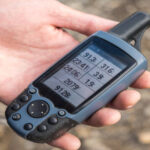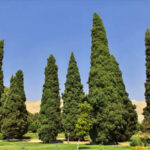The word “RylieZone” has surfaced as a term that captures curiosity, blending the personal with the communal, and the digital with the physical. For many, it evokes questions: Is it a brand? A concept? A space? In truth, RylieZone refers less to a fixed definition than to a growing idea of personal and collective domains shaped by identity, technology, and evolving culture. Within the first glance, the term can be read as the merging of individuality—“Rylie,” often a personal name—with “Zone,” a space of belonging, interaction, or creativity.
In this article, we will explore the multi-layered dimensions of RylieZone: its conceptual meaning, cultural significance, digital presence, potential applications, and the reasons behind its growing attention. Along the way, we’ll analyze how such hybrid terms evolve into informational anchors for communities, and why they matter for anyone navigating the modern age of identity, digitalization, and self-expression.
What is RylieZone?
At its core, RylieZone can be interpreted as a personalized space of expression and interaction. While it doesn’t describe a single product or institution, the keyword carries implications in several areas:
- Identity: A representation of personal brand, whether individual or community-driven.
- Digital Presence: A marker of online platforms, usernames, or creative hubs.
- Cultural Symbol: A term pointing toward the intersection of individuality and shared belonging.
In short, Rylie-Zone is best understood as a flexible, adaptable concept: a zone for Rylie—or any person adopting it—to define and share.
Why RylieZone Matters
The importance of Rylien-Zone lies not in a fixed definition, but in its ability to encapsulate modern dynamics of identity and space. As we shift toward online-first interactions, our sense of “zones” has grown more layered. A zone can be a website, a social media identity, a virtual workspace, or even a cultural movement. Adding a personal prefix such as “Rylie” transforms it into a narrative of ownership and authorship.
For searchers and readers, this matters because it touches on three urgent cultural needs:
- Authenticity: People want spaces that feel genuinely theirs.
- Belonging: Communities form around names, ideas, and shared spaces.
- Visibility: In the digital era, recognition requires creating unique zones of presence.
Rylie-Zone, as a phrase, mirrors these needs.
A Historical Lens: The Rise of “Zones”
To understand why Rylie-Zone resonates, we should first look at the long history of “zones” in cultural and informational contexts:
- Geographic Zones: Physical areas defined by borders or purpose, like time zones or free trade zones.
- Psychological Zones: States of being, such as “comfort zone” or “the zone” in performance psychology.
- Digital Zones: Domains and websites, marking spaces of ownership and information.
The merging of personal names with the idea of a “zone” became prominent in the early internet era. Individuals often created personal webpages or blogs titled after their own names plus ‘zone’—for example, “ChrisZone” or “Anna’s Zone.” These were early experiments in identity building.
RylieZone, therefore, stands not alone but as part of a lineage of digital and cultural zones, shaped by personal expression.
The Contemporary Relevance of RylieZone
Today, RylieZone resonates because of how society uses names and spaces online. We live in an age when:
- Usernames become brands.
- Communities rally around personal hubs.
- Digital creativity requires unique identifiers.
In this context, RylieZone could be:
- A personal blog documenting experiences.
- A digital art hub sharing creativity.
- A community forum encouraging dialogue.
- A brand identity representing authenticity.
The search for RylieZone reflects a broader human desire to locate meaning in identifiers that feel both universal and specific.
Interpreting RylieZone Through Multiple Lenses
To make sense of RylieZone, it helps to interpret it through different academic and cultural lenses:
1. Linguistic Perspective
RylieZone is a compound word. The first part, “Rylie,” is often used as a given name, suggesting personalization. The second part, “Zone,” signals space or territory. Together, the word communicates “a space belonging to Rylie.”
2. Sociological Perspective
From a sociological view, RylieZone could be understood as a micro-community, reflecting how modern individuals create mini-societies around shared names or digital identities.
3. Psychological Perspective
In psychology, “zones” represent comfort, flow, or limitation. The RylieZone may symbolize a mental or emotional state of belonging and creativity.
4. Technological Perspective
In the digital world, zones often equate to domains, servers, or platforms. RylieZone could easily be a digital ecosystem—a website, social network handle, or gaming community.
The Potential of RylieZone in Modern Culture
RylieZone’s adaptability opens up real-world applications in modern contexts:
- Education: A zone of learning, where content is shared for growth.
- Entertainment: A personal streaming hub, podcast, or creative channel.
- Business: A small-scale brand identity emphasizing authenticity.
- Community-Building: A safe space for dialogue, mentorship, or peer support.
By framing RylieZone as a flexible tool, one sees its potential to evolve with time and usage.
Table: Dimensions of RylieZone
| Dimension | Interpretation | Examples of Use |
|---|---|---|
| Linguistic | Compound word of personal + space | “A space belonging to Rylie” |
| Cultural | Identity and community symbol | Online forums, fandom spaces |
| Digital | Domain, hub, or handle | Social media, personal websites |
| Psychological | Comfort or creativity zone | A mental/emotional safe space |
| Business/Branding | Unique personal branding element | Small business identity, digital brand |
Why People Search for RylieZone
Searchers often want clarity, origin, and application. The curiosity stems from encountering the phrase in digital or cultural settings, and the search intent often involves:
- Finding its definition.
- Learning about its background.
- Exploring its possible uses.
- Determining its cultural or technological meaning.
For content creators, businesses, or communities, understanding this intent is vital.
The Digital Age and the Value of Unique Terms
In the crowded digital world, uniqueness matters. Terms like RylieZone stand out because they:
- Combine familiarity (a human name) with universality (the concept of a zone).
- Offer flexibility for branding, personal growth, and cultural relevance.
- Resonate with search algorithms due to originality.
Thus, RylieZone illustrates how naming trends influence visibility, connection, and meaning.
Future Outlook: Where Could RylieZone Go?
The trajectory of RylieZone could mirror the evolution of similar concepts:
- It may become a personalized brand or cultural movement.
- It could serve as the basis for digital communities or creative platforms.
- It might evolve into a recognized digital identity marker.
Ultimately, its future will depend on how individuals and communities choose to define it.
Common Misconceptions About RylieZone
Because of its flexible meaning, misconceptions naturally arise:
- It is not restricted to one definition.
- It is not necessarily a commercial brand.
- It is not a purely digital or physical space—it can be both.
Recognizing this flexibility helps searchers approach RylieZone with curiosity rather than fixed assumptions.
FAQs on RylieZone
1. What does RylieZone mean?
RylieZone refers to a personalized or symbolic space—digital, cultural, or psychological—associated with identity and belonging.
2. Is RylieZone a brand?
Not exclusively. While it can serve as a branding tool, it is more broadly understood as a concept of space and identity.
3. How is RylieZone used in digital culture?
It often appears as a username, online hub, or digital community that signifies a personal or collective identity.
4. Can RylieZone represent a real-world community?
Yes. Like other “zones,” it could describe safe spaces, clubs, or initiatives created under the umbrella of shared identity.
5. Why is RylieZone gaining attention?
Because it combines personal identity with the universal concept of a zone, making it memorable, adaptable, and meaningful.
Conclusion
The significance of RylieZone lies less in what it already is, and more in what it has the capacity to become. It exemplifies the way language evolves, how culture adapts to digital dynamics, and how individuals carve spaces that reflect both personal and collective meaning. Whether you encounter RylieZone as a digital identity, a cultural concept, or a metaphorical state of being, it invites you to consider the importance of zones of belonging in the modern world.
For searchers, the answer is clear: RylieZone is an adaptable, symbolic term that merges identity and space. Its flexibility makes it valuable, its uniqueness makes it memorable, and its potential makes it worth paying attention to in the years ahead.











